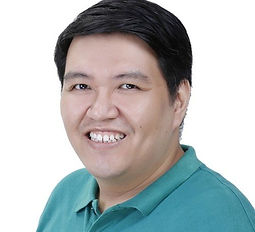
ALEXANDER
ALIMMUDIN ALI
Born: August 26, 1979
Partylist: Workers' and Farmers' Party, PMM
References
Profile written by
Rosabell C. Toledo
Photo by
www.twitter.com
Alexander Alimmudin Ali, also known as Aldin Ali, joined the senatorial bid under the slate of late presidentiable Seneres and partylist Partido ng Manggagawa at Magsasaka.
Ali graduated from San Beda College Manila in 2003 with a degree in AB Philosophy. Without an outstanding political experience prior to this bid, he remains in the cellar as far as election survey results are concerned.
This is not to say, however, that his is not a promising candidacy. As a matter of fact, he has a lot planned when it comes to the welfare of the country and its people:
His ‘Pamilyado. Empleyado. Pilipino!’ puts him nowhere but with the Filipino masses. His catchphrase draws a picture of him as someone who is from the masses, with the masses and for the masses. He identifies with the Filipino people, empathizing with their experiences – allowing him to have the image of someone who understands the situation of most if not all the Filipinos. His campaign strategy is to let the people know that he also shares the Filipino people’s plight, as he experiences them too. This then becomes the backbone of his campaigns and advocacies.
As great as it may sound, it is just too familiar – we (should) know this by now like the back of our hands: let’s face it, he is not the first one to say these things and it does not take a historian to remember the countless times that these were nothing but empty promises of those before him. It would be problematic to hastily conclude that he would not be capable of executing the things he plans, but it is difficult to imagine him succeeding when his platforms are quite general and does not include a lot of concrete action steps.
That being said, his platform is promising, neverthless; it includes (1) enough food for each member of the family, (2) proper health care, (3) appropriate, scientific and accessible education, (4) peaceful, violence and crime-free environment, (5) clean environment, (6) more job opportunities, (7) stop contractualization and secure tenure instead, (8) decent and safe jobs, (9) right wage and complete benefits, (10) lower income tax for a greater take home pay, (11) better service from the government like the public transportation system.
Ali also wishes to work on the betterment of the OFW. He wants stricter implementation of laws against illegal recruitment and graver vigilance to catch bogus recruitment agencies that hurt the aspiring overseas workers. Simultaneous to these efforts in helping our OFWs, Ali also aspires for industrialization of the local economy so as to provide more opportunities for local employment, and eventually eradicate the need for Filipinos to move to a foreign country in the hope of a better life.
On the issue of territorial conflicts with neighbouring countries, Ali remains stern that we must assert our rights to said territories, but that the government must not use military force or provocation. He believes that diplomacy and neighbourhood communication would work best in handling situations such as territorial conflicts.
Finally, Ali plans on transforming the country to one that is equally accepting of all religions existing within its borders. He believes everyone should be able to coexist in a peace-loving country. He fails to address, however, how the country could get there from its current state of being war-torn and divided.
Ali actually has a multitude of grand plans for the country, but it seems as if he has to prove himself capable of executing these grand plans first, given the reality that those without familiar family names or celebrity backgrounds rarely make it to win positions in the Philippine government.


